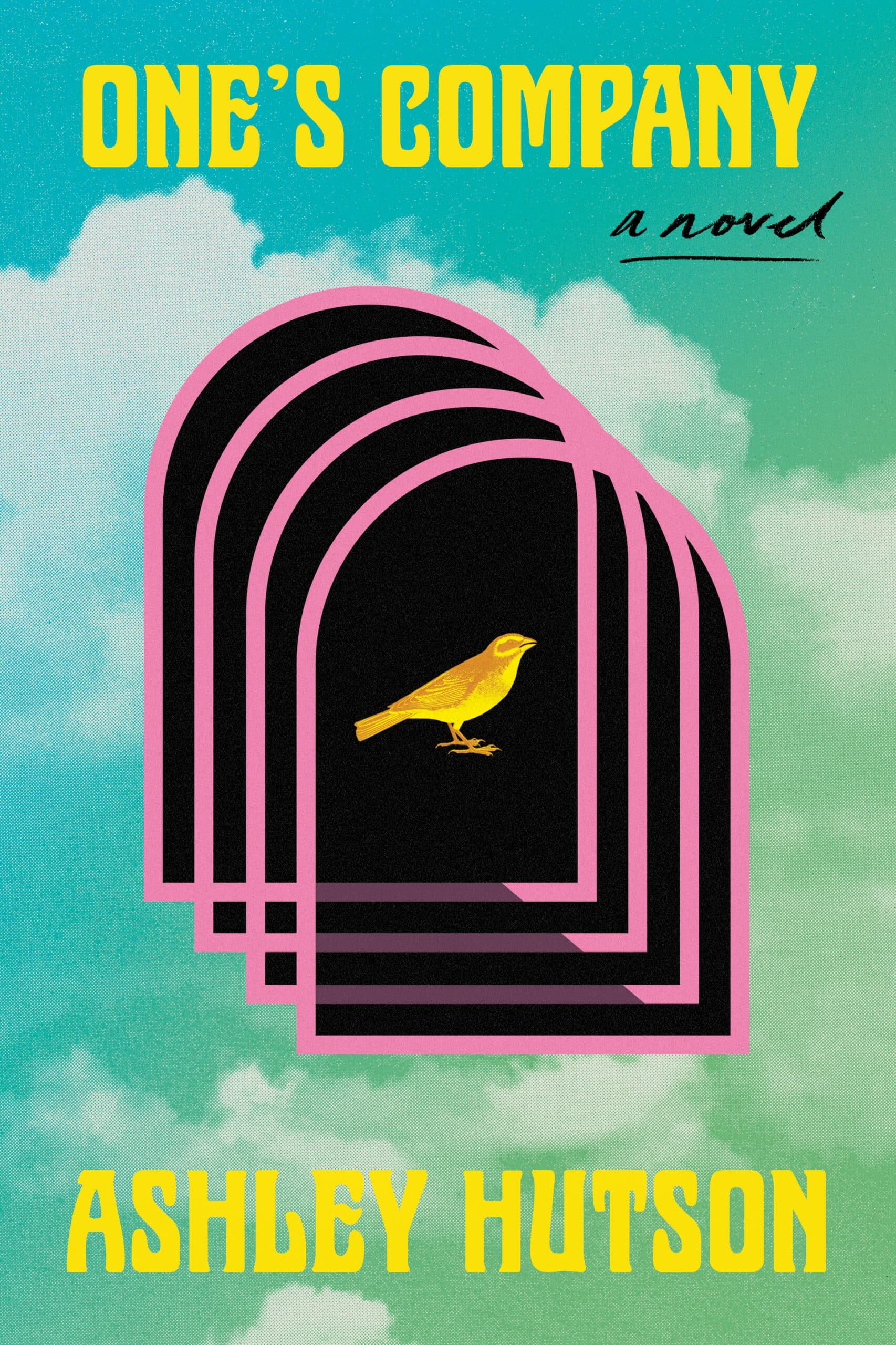A fervent devotion to an interest, like television series, is not unheard of; comparable to how I avidly follow Survivor, only more immersive. Bonnie Lincoln, the central character in Ashley Hutson’s premier novel, One’s Company, seeks to immerse herself entirely in her passion. Bonnie staunchly commits herself to living in a meticulously constructed replica of the 1970s sitcom Three’s Company, pursuing an existence merged with that of the show’s characters.
With newfound lottery wealth, Bonnie abandons her old, meager dwelling for an exact re-creation of the sitcom’s set, embarking on a life of role-playing. Only her lawyer and a handful of agency workers—entrusted with supplying her provisions and ensuring her seclusion—know of her winnings and her retreat into this self-made sanctuary.
However, Bonnie’s retreat is not just a whimsical escapade; it’s a poignant escape from a haunting family tragedy. As she delves further into her solitude, declaring, “One is never alone when submerged in their craft,” she reinforces that she is either en route to or engrossed in her artistry.
Our Culture had the pleasure of discussing with Ashley Hutson her novel’s inspiration, the intricacies of multiple personal identities, and the profound psychological landscapes behind Bonnie’s character.
What’s it like to transition from short stories to releasing your first novel?
My days as a prolific short story author have slowed, but the satisfaction in releasing a novel remains strong. While it may not alter my day-to-day, it’s a milestone that holds personal pride and joy.
Bonnie Lincoln is flawed, sometimes even displaying extreme, violent tendencies, particularly toward her friend Krystal. Can you share your experience bringing such a complex character to life?
To me, Bonnie isn’t inherently ‘bad’; her actions stem from severe trials she’s faced. The crafting of her psyche was an intriguing exercise in character writing—a delightful departure from penning sociable and agreeable personas.
Often, online critics equate a morally ambiguous protagonist with problematic literature. Do you agree?
Not at all. The narrative that a character’s misdeeds signify problematic storytelling doesn’t resonate with me. Exploring the psyche of an unreliable, imperfect narrator is more compelling than creating a middling, virtuous one.
Bonnie fashions her life around her obsession with Three’s Company. Did your personal experiences inspire this aspect of the story?
Indeed, I’m quite fond of Three’s Company. Crafting the novel was a way to utilize my penchant for obsession and to ideate my fantasy without the means to realize it in reality—to push the concept as far as imagination allows.

The label ‘absurdist fiction’ is attributed to your novel. How has the lottery win served as a device in Bonnie’s journey?
The lottery win is a narrative tool that grants Bonnie limitless capability, an essential element in a capitalist society, to explore her desires and indulge in an extravagant, imaginative escapade.
Bonnie’s self-centered use of her fortune contradicts the usual expectations of charitable acts following such a win. What’s your take on that?
If the windfall is yours, why not indulge in your dreams? Bonnie’s decisively selfish use of her winnings underscores the essence of pure, unrestricted liberty.
Bonnie’s delusions and self-projections within the sitcom’s universe delve deep into identity. What drew you to this area of exploration?
My recent work gravitates toward the multifaceted nature of identity, suggesting that we possess a plurality of selves within. This theme is pivotal, resonating with a universal, yet often unspoken, longing to reinvent and reimagine our identities.
The reactions to your book have been positive, noting in particular the confidence in your writing. How does Three’s Company influence your style, and does it diverge from your earlier short stories?
Three’s Company has been a touchstone for my creative process, though my unique narrative style is something of a mystery to me. The transition from short stories to a novel has brought new dimensions to my writing that were not consciously planned.
Did you wish to become a writer from an early age?
The path toward writing wasn’t always clear to me. Originating from a community that undervalued artistic pursuits, the realization and acceptance of my aspirations only developed later in life.
As the narrative progresses, an unforeseen storm disrupts Bonnie’s carefully curated existence. Why did you choose to introduce this element?
The storm represents life’s unpredictability, a stark interruption to Bonnie’s fantasy that ushers in a newfound reality and perspective, challenging the boundaries of her constructed world.
With the release of your novel, are there any other projects on the horizon?
I’m currently nurturing a new book project, though I’m keeping the details under wraps for now, hoping that it won’t take another decade to come to fruition.
One’s Company is now available for readers to delve into.